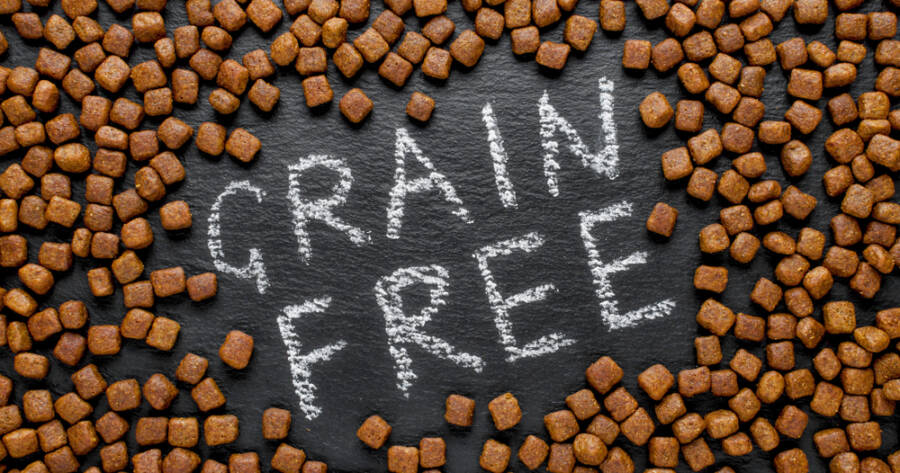Grain-free pet diets have become increasingly popular in recent years, especially among owners who want to provide the best for their furry companions. Pet food shelves are now filled with grain-free labels, often marketed as healthier or more “natural.” But is skipping grains actually better for your dog or cat? And what does current research suggest? Before switching to a grain-free formula, it’s important to understand the science behind grain-free diets—and whether they meet your pet’s specific needs.
Why Some Pet Owners Choose Grain-Free
Many people choose grain-free diets for their pets based on concerns about food allergies, digestive issues, or overall health. In some cases, owners assume that grain-free food mirrors a more ancestral or carnivorous diet. Others may simply follow trends they’ve seen online or heard about from other pet owners.
Grain-free pet foods typically replace ingredients like corn, wheat, or rice with alternatives such as peas, lentils, chickpeas, or potatoes. While these ingredients are still carbohydrates, they give the impression of being more “wholesome” or “less processed.”
For pets with documented grain allergies—which are rare—a grain-free diet can be helpful. But for the average healthy pet, the benefit of going grain-free may not be as clear-cut as some assume.
What the Science Says About Grains and Pets
Despite the trend, there is no strong scientific evidence that grains are harmful to most dogs and cats. In fact, whole grains like brown rice, barley, and oats can offer valuable nutrients such as fiber, B vitamins, and essential fatty acids. They also serve as a steady source of energy.
Most pets digest grains just fine, especially when the grains are properly cooked and balanced with protein. The myth that dogs and cats cannot process carbohydrates has been widely debunked. While cats are obligate carnivores and need meat-based protein, they can still utilize carbohydrates for energy when included in moderate amounts.
In dogs, which are omnivores by nature, carbohydrates from grains can be part of a well-balanced diet. Studies show that grain-inclusive diets support healthy digestion and are not associated with negative health outcomes for the general pet population.
The Heart Health Debate: DCM and Grain-Free Diets
One major scientific concern surrounding grain-free diets is their potential link to canine dilated cardiomyopathy (DCM)—a serious heart condition. In 2018, the FDA began investigating reports of DCM in dogs eating grain-free foods, especially those with high levels of legumes like peas or lentils.
Some affected dogs had no known genetic risk for DCM, which raised alarms about whether certain grain-free diets might be contributing to heart problems. While the exact cause remains under investigation, veterinarians and researchers suspect that these formulas may lack essential nutrients like taurine or interfere with taurine absorption.
It’s worth noting that not all grain-free foods are harmful, and not all dogs will develop DCM. However, the issue has led many veterinary professionals to recommend caution when choosing boutique or exotic grain-free foods—especially if they are not backed by strong nutritional research.
How to Choose the Right Diet for Your Pet
If you’re considering a grain-free diet, it’s important to talk with your veterinarian first. They can help determine whether your dog or cat has a genuine sensitivity to grains, or whether another issue—like protein allergies or digestive disorders—is the cause of any symptoms.
A few things to keep in mind:
- Grain-free doesn’t automatically mean better. Some pets thrive on grain-inclusive diets.
- Look for foods that meet AAFCO standards for complete and balanced nutrition.
- Choose brands that conduct feeding trials and have veterinary nutritionists on staff.
- Watch for signs of digestive trouble, weight changes, or low energy after switching diets.
For pets with medical conditions or special dietary needs, your vet may suggest a prescription or limited-ingredient diet, which may or may not include grains.
Grain-Free Isn’t Always the Gold Standard
Grain-free diets can be beneficial in certain situations, especially for pets with specific food sensitivities. But for most dogs and cats, grains are not harmful—and in many cases, they provide valuable nutrition. Scientific research supports the safety and effectiveness of balanced grain-inclusive diets for healthy pets.
While grain-free food may sound appealing, it’s best to base dietary choices on your pet’s individual needs and evidence-based guidance from your veterinarian. In the end, a healthy pet diet is one that’s complete, balanced, and chosen with care—not just the latest label trend.

